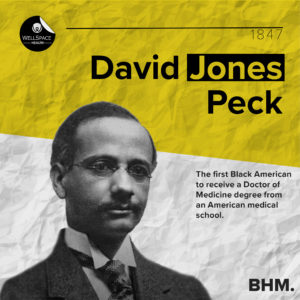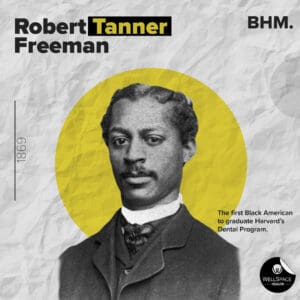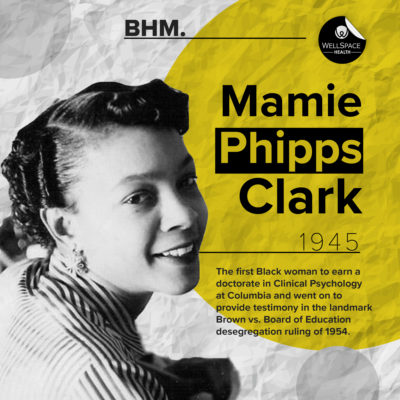Black American Accomplishments in Healthcare
What are the important dates we remember in the American conscience? 1492? 1776? 1861-65? 9/11? 7/4? 12/7?
So what about 1619?
If you were watching the quay at Point Comfort in the English Colony of Virginia in August 1619 you might have seen the ship carrying 20 or more enslaved Africans docking. This was the first known slave ship to the American colonies and, as noted in the NY Times “no aspect of the country that would be formed here has been untouched by the years of slavery that followed…” Point Comfort. Many of us have an association to “Plymouth,” “Plymouth Rock” or “the Mayflower.” That was a year later in 1620 (yes, slaves came before the Pilgrims). But Point Comfort? 1619? 400 years later we can reflect on 246 years of slavery until the Emancipation Declaration of 1862 and ‘Abolition’ in 1865, or the 345 years until the Civil Rights Act of 1964. 157 years after slavery first landed at Point Comfort, the United States of America were born from the Declaration of Independence on July 4th 1776. 167 years after slavery first landed at Point Comfort, the Constitution and Bill of Rights (1787) made “all men equal.”
246 years of slavery and a slow transition to freedom that was only reinforced by a civil rights law in the 1960s. During these centuries the history of the land was largely written, so it’s not a surprise that while slaves were building a Nation the might, wealth, and culture of that Nation were credited to the owners of the slaves.
I cannot cover an entire history in a Mid-Month Message, but I think about the work I do and feel that perhaps this is a time when we can reflect on the vital historic contributions of African Americans to some of the work we do at WellSpace Health.
Health Care
- 1847 – David Jones Peck graduates from Rush University as the first African American graduate of a US medical School

- 1854 – John Van Surly DeGrasse was the first African American member of a Medical Society (Massachusetts Medical Society)
- 1864 – Rebecca Lee Crumpler was the first African American woman to become a doctor of medicine in the United States, graduating from the New England Female Medical College
- 1993 – Jocelyn Elders became the first African American Surgeon General
- Patient-Centered Health Home is a key part of our health delivery system because of its relationship to quality outcomes. Dr Freda Lewis Hall, a graduate of Howard University, was appointed to the first federal Board of Governors for the Patient-Centered Outcomes Research Institute (PCORI) and has been a passionate advocate for the treatment model we embrace.
- Henrietta Lacks. Perhaps nobody in the history of medicine has helped so many others with cures and treatments including Polio through multiple types of cancer as Henrietta Lacks. On February 8th, 1951, cancer cells were harvested from Ms. Lacks and came to be known as HeLa cells (HenriettaLacks). While Henrietta Lacks died in October 1951, over 50 million metric tons of cells used for a wide range of life-saving treatments were grown from what are known as her ‘immortal’ cells. HeLa cells are the be oldest and most used human cell line to be maintained in labs. Henrietta Lacks was unaware of her contribution to humanity.
Dental

- 1840 – first US dental School refused to train African American dentists
- 1867 – Harvard Dental School accepted its 16 inaugural students amongst whom was Robert Tanner Freeman.
- 1890 – Ida Gray Nelson Rollins graduates the University of Michigan as first African American female dentist
Behavioral Health
- 1920 – Francis Sumner became the first African American psychologist.
- 1945 – Mamie Phipps Clark became the first African American Woman to earn a doctorate in Clinical Psychology at Columbia and went on to provide testimony in the landmark Brown vs. Board of Education desegregation ruling of 1954.
- 1890s – Solomon Carter Fuller was the first African American psychiatrist who performed groundbreaking research in Alzheimer’s patients and worked alongside Alois Alzheimer who first discovered the traits of the disease in 1901.
- Benny Primm was the founder and Executive Director of the Addiction Treatment and Research Corporation. He played a powerful role in the public health response in the early days of the AIDS epidemic. Primm was also a highly respected proponent of medically assisted treatments for opioid addiction and used his public health influence to promote methadone maintenance programs. Later he was a presidentially-appointed Director of the federal Center for Substance Abuse Treatment where he furthered these causes and also advocated for co-occurring substance use and mental health disorders treatment. Primm died in 2015 having become one of the most influential figures in the field of addiction and substance abuse treatment.
- Ronald Williams – founder of New York Therapeutic Communities and pioneer for alternatives to incarceration programs as well as prison-based residential rehabilitation programs for substance use disorders.

Suicide Prevention
- Sherry Molock – professor and clinical psychologist at George Washington focusing on the risk and protective factors for suicide in African American adolescents and young adults. Dr. Molock has also designed various public health and prevention programs for communities of colour, and has focused on help-seeking behaviours in African American adolescents and young adults.
Social Services
- Anna Julia Cooper – was born into slavery but earned a doctorate from the University of Paris-Sorbonne in 1024. Considered to be one of the most important scholars in US history who also guided the development of American sociology. Cooper focused on education for Black girls and women as the primary vehicle to the progress of people of colour following slavery.
- Frantz Omar Fanon – was a physician and psychiatrist who worked in the mid-1900s. His medical work focused on the health consequences of living in colonialism and the mental health effects of decolonization (a major global transition in the 1950s). his work was impactful in sociology, anthropology, and public health.
- Nadine Burke Harris – pediatrician and researcher, and first Surgeon General of California. Burke Harris is known for her work linking adverse childhood experiences (ACEs) and toxic stress with harmful effects on health later in life.
Be well,
Jonathan
